Key takeaways:
- Integrity in storytelling fosters trust and allows audiences to connect emotionally with narratives.
- Teaching children the value of honesty through real-life experiences enhances their moral foundation and decision-making skills.
- Storytelling serves as a powerful tool in conveying lessons of integrity, encouraging children to reflect on their own values and choices.
- Personal reflections on integrity highlight its importance in everyday decisions and the emotional clarity it brings in relationships.
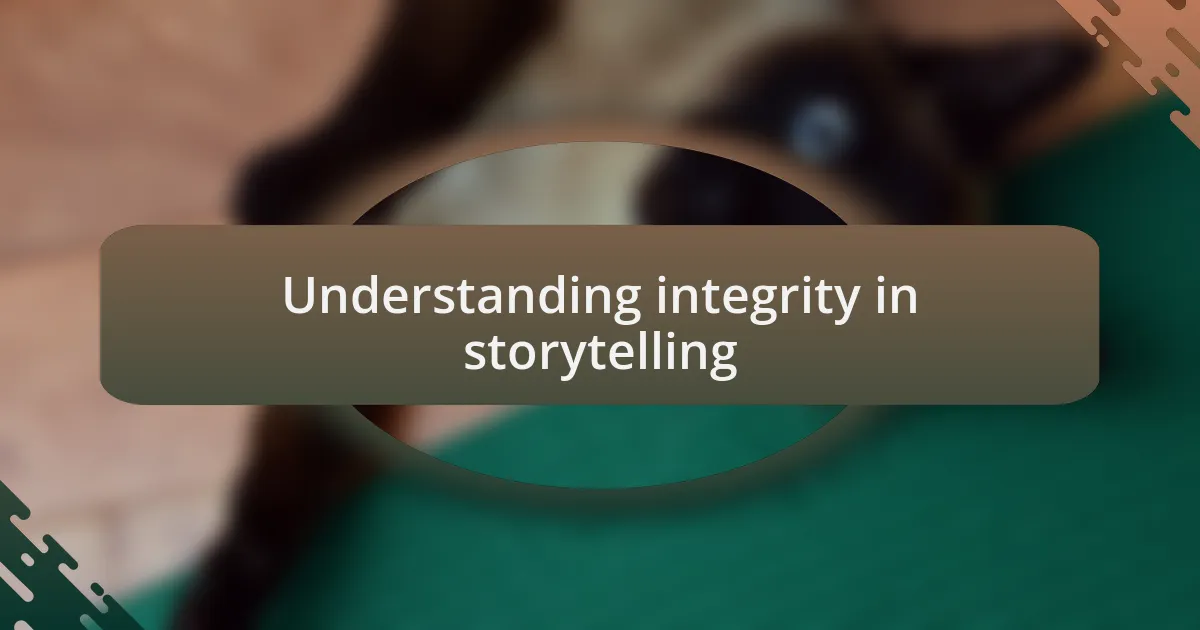
Understanding integrity in storytelling
Integrity in storytelling means being truthful and genuine in the narratives we create. I remember a time when I crafted a story for younger kids about a lost puppy. Instead of exaggerating its adventures, I focused on the puppy’s emotions and the real feelings of love and concern that resonated with the children. Isn’t it fascinating how a simple, honest tale can resonate far deeper than a fanciful yarn?
When we embrace integrity, we invite our audience to trust our stories. I once told a story about overcoming fear during a school play, sharing my own experiences of stage fright. The kids responded with such empathy; they connected with the fear and triumph on a personal level. Have you noticed how children often respond more genuinely to stories that reflect real emotions and experiences?
Integrity also encourages us to respect our audience by being mindful of the messages we convey. I often ask myself, “What will the children take away from this story?” Focusing on values like honesty and friendship not only enriches the narrative but also nurtures the character of those who listen. After all, stories shape our understanding of ourselves and the world around us, so shouldn’t they be grounded in integrity?
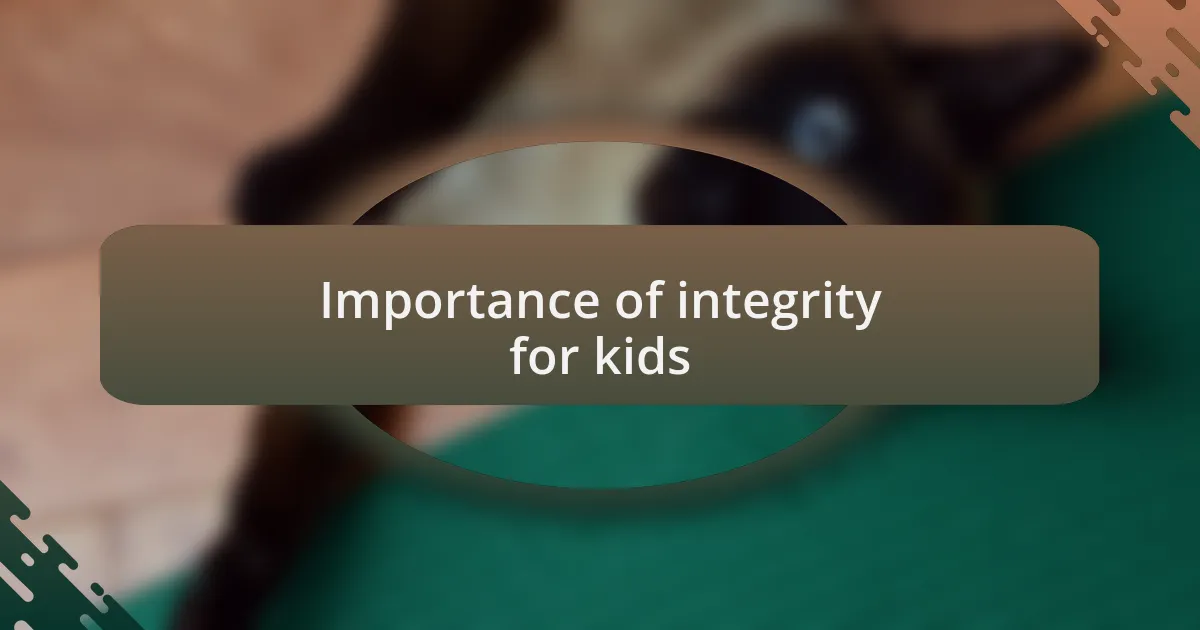
Importance of integrity for kids
The importance of integrity for kids cannot be understated. When children learn to value honesty, they develop a strong moral foundation. I recall a friend’s son who once admitted to his teacher when he accidentally broke a classmate’s toy. Instead of being scolded, his honesty earned him respect from his peers. Isn’t it empowering to see how integrity can transform situations and relationships?
Moreover, integrity fosters better decision-making. I’ve seen kids who embrace honesty often choose friends who exhibit the same values. A classmate in elementary school showed me that standing by what you believe in can be incredibly rewarding. It made me think, how can we encourage kids to uphold their principles when faced with pressure?
Ultimately, instilling integrity in children helps build their confidence. I often think about how I felt when sticking to my values, even when it was tough. Each time I chose to be honest, it strengthened my self-esteem. Don’t we all want our kids to grow up feeling secure in who they are? Integrity paves the way for that certainty.
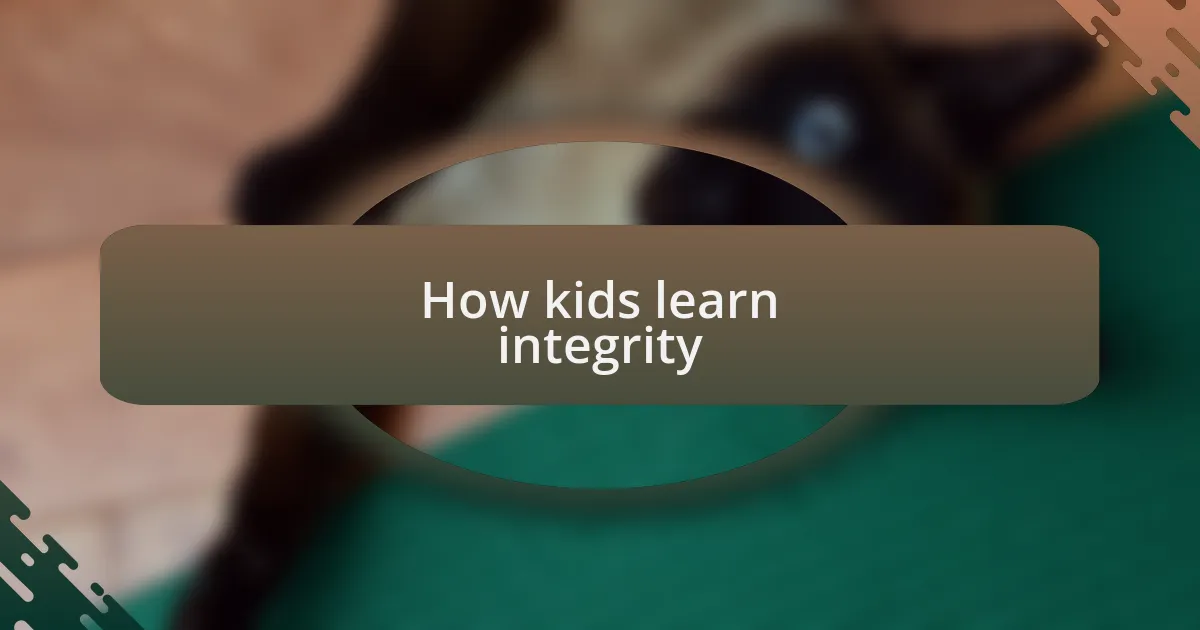
How kids learn integrity
Kids often learn about integrity through observation and experience. I remember a moment when my niece saw her friend drop a five-dollar bill. Instead of keeping it, her friend chose to return it to the cashier. Watching that act made my niece ponder the importance of honesty. It reinforced for her that integrity isn’t just a lesson but a way of life.
Playtime can also be a powerful teacher. During a game, my nephew once faced the temptation to cheat to win. Yet, when he chose to be honest, his victory felt so much sweeter, and he beamed with pride. This experience solidified in him that winning isn’t everything; how you play the game matters more. Isn’t it fascinating how even small moments can leave lasting impressions?
Parenting plays a crucial role in this learning process. I often talk with friends about how real-life conversations about mistakes can be invaluable. Instead of punishing, discussing the implications of dishonest actions can encourage thoughtful reflection. When kids see their parents uphold integrity in day-to-day life, it naturally influences them to adopt similar values. How powerful is it to think that we can be role models in such a fundamental aspect of character development?
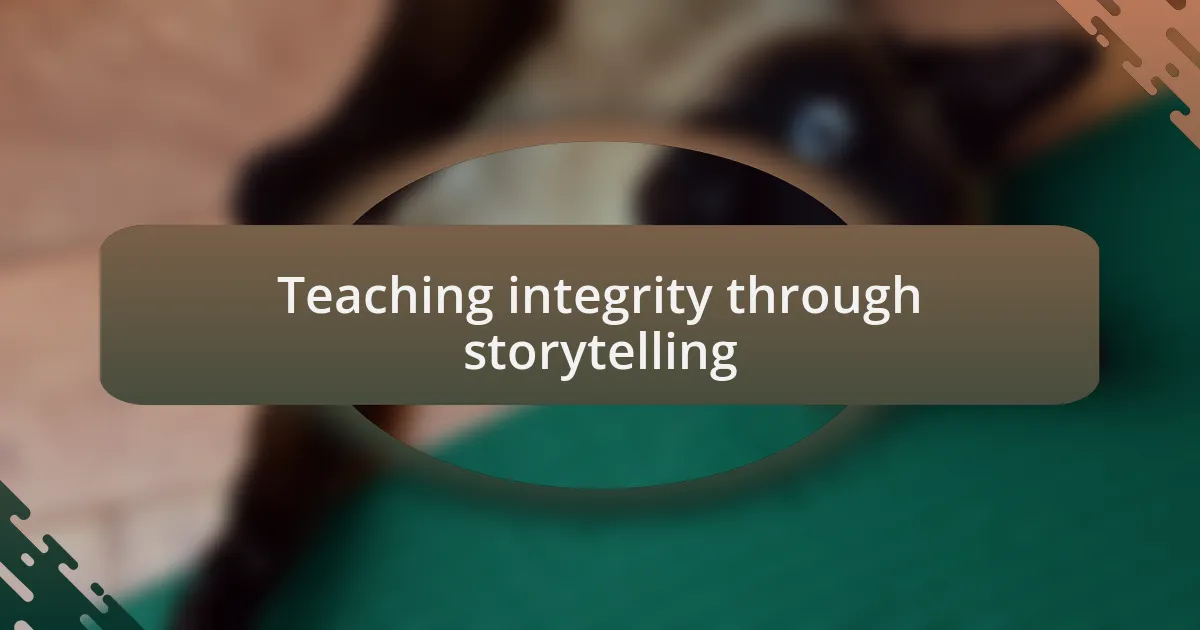
Teaching integrity through storytelling
Teaching integrity through storytelling is an incredibly effective approach. I recall reading a tale about a young fox who learned that lying might get him immediate rewards but ultimately cost him the trust of his friends. This story sparked a lively discussion among the kids I read it to, where they expressed how honesty felt much more rewarding than deception. It was enlightening to witness how a simple narrative could prompt such profound thoughts about integrity.
Stories are not just entertaining; they have the power to shape moral values. I remember narrating a fable where a village came together to help a lost child. It resonated with the children today, allowing them to understand the significance of honesty and helping others. The laughter and joy of the story quickly turned into serious reflections about their own experiences of helping friends in need. Can you see how a narrative can weave lessons of integrity into the fabric of a child’s understanding?
When I encouraged my daughter to create her own story about making a tough choice, she crafted a tale about a princess who had to choose honesty over popularity. Watching her grapple with the characters and their dilemmas, I saw the light bulb moment when she realized this reflected her own struggles in school. It drove home that storytelling isn’t just a conduit for lessons; it’s a mirror where children can see their own values and decisions come to life.
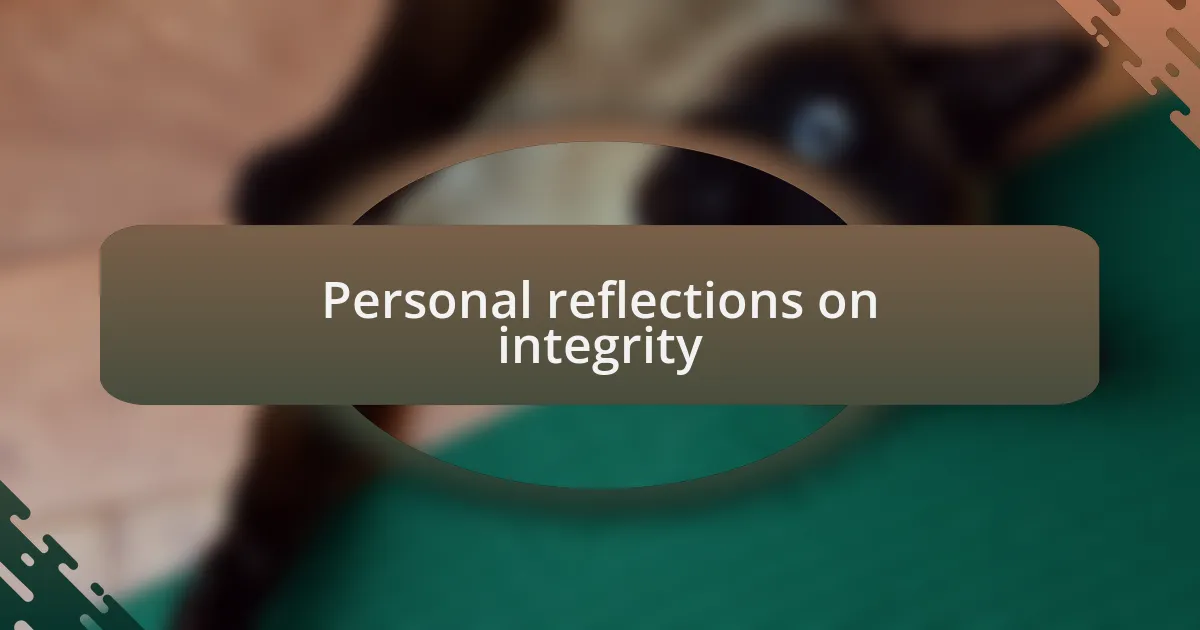
Personal reflections on integrity
Reflecting on integrity often brings to mind moments from my own childhood. I vividly recall a time in school when a friend pressured me to cheat on a test. It was a tempting offer, but deep down, I knew that choosing honesty was the better path. That experience taught me that integrity isn’t just about the big decisions; it’s woven into the fabric of everyday choices.
I remember feeling a wave of guilt after telling a small lie to my parents. The relief I experienced when I finally confessed was profound, and it made me realize that integrity provides emotional clarity. In that moment, I understood that being truthful could strengthen relationships and build a foundation of trust. Have you ever noticed how honesty feels lighter than carrying the weight of a lie?
As I share stories with kids today, I often see my reflections mirrored back at me. I sometimes ask them, “What does it feel like when you make a promise?” Their eager responses remind me of my own realizations about commitment. Each interaction reinforces my belief that instilling integrity from a young age can profoundly shape who we become as adults.